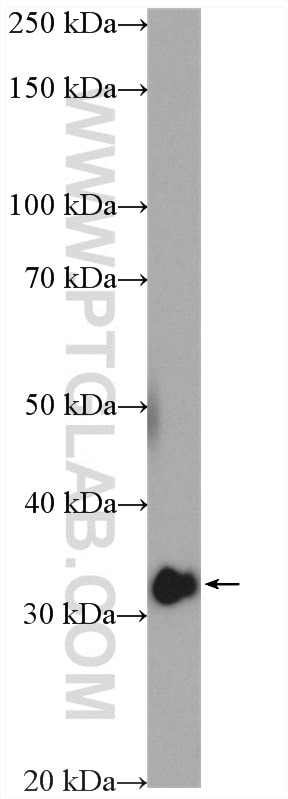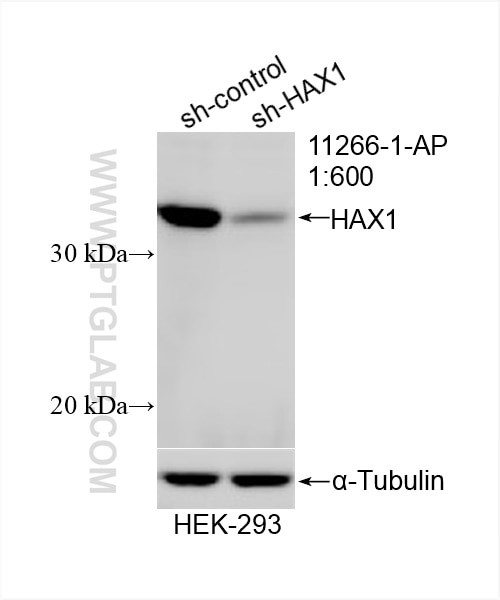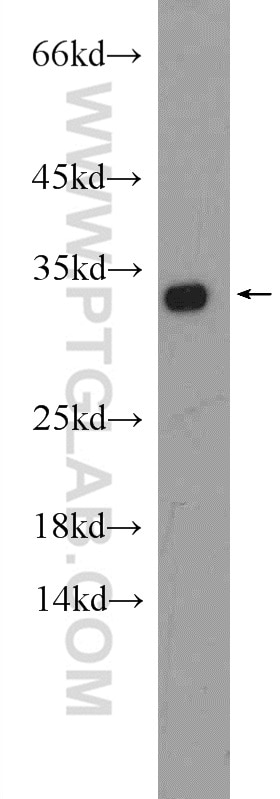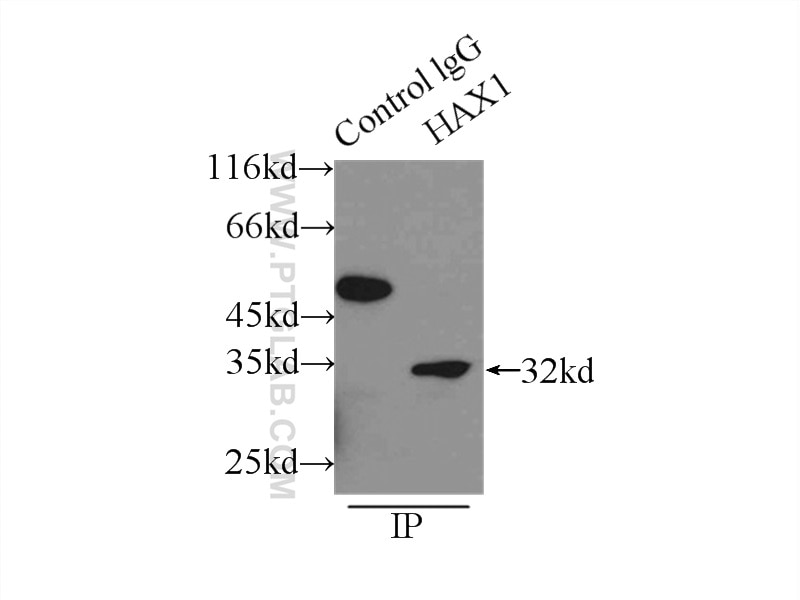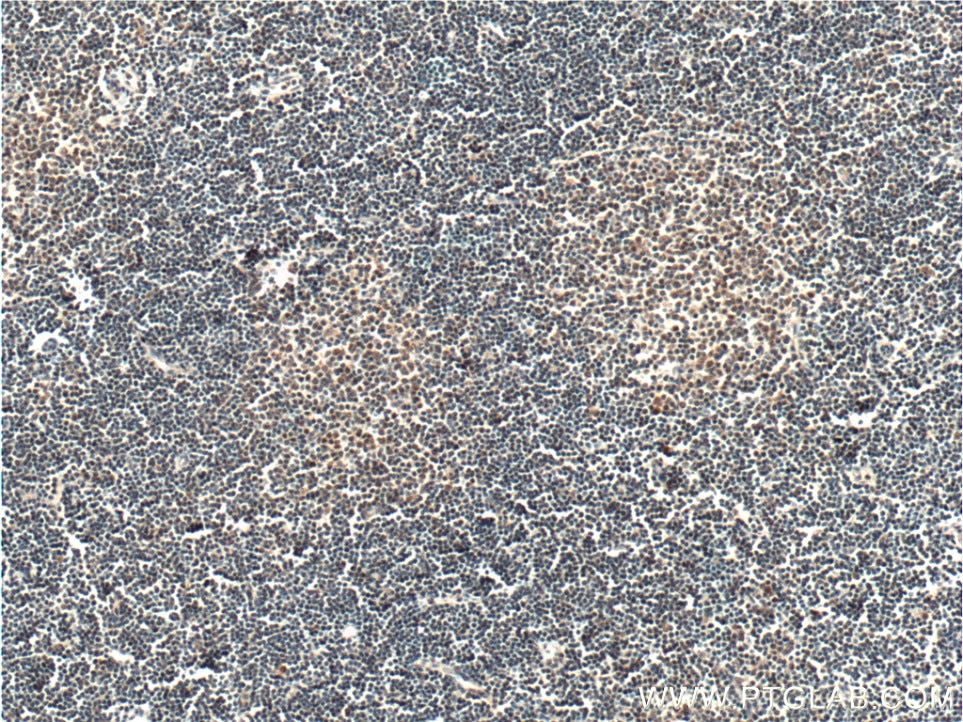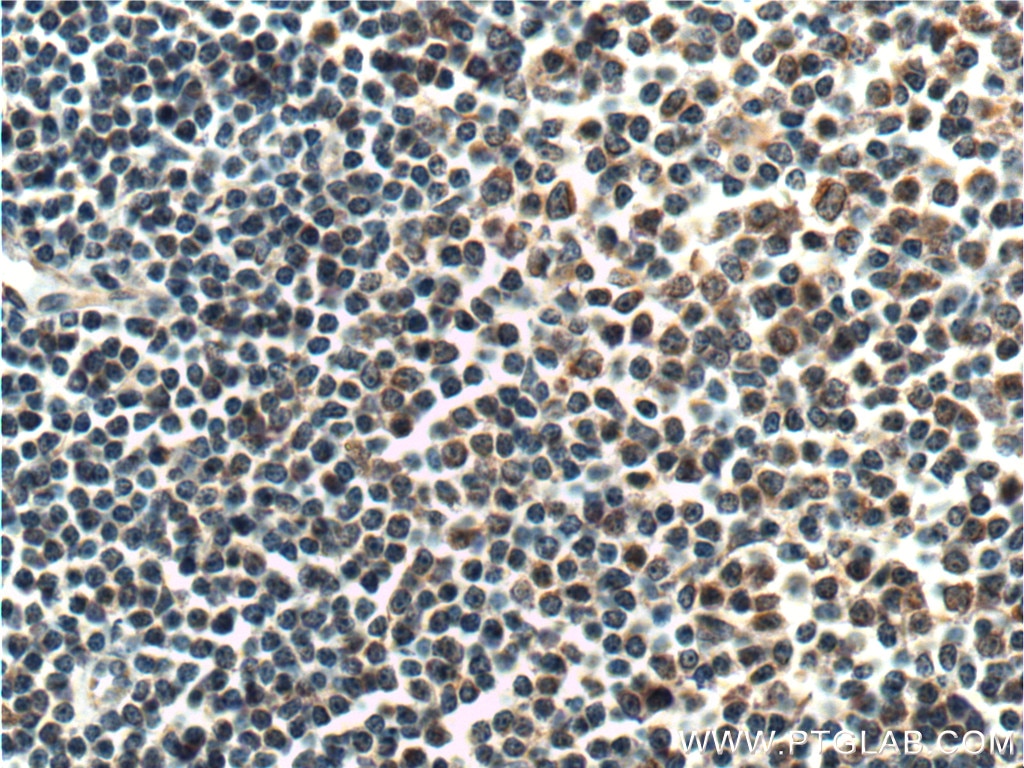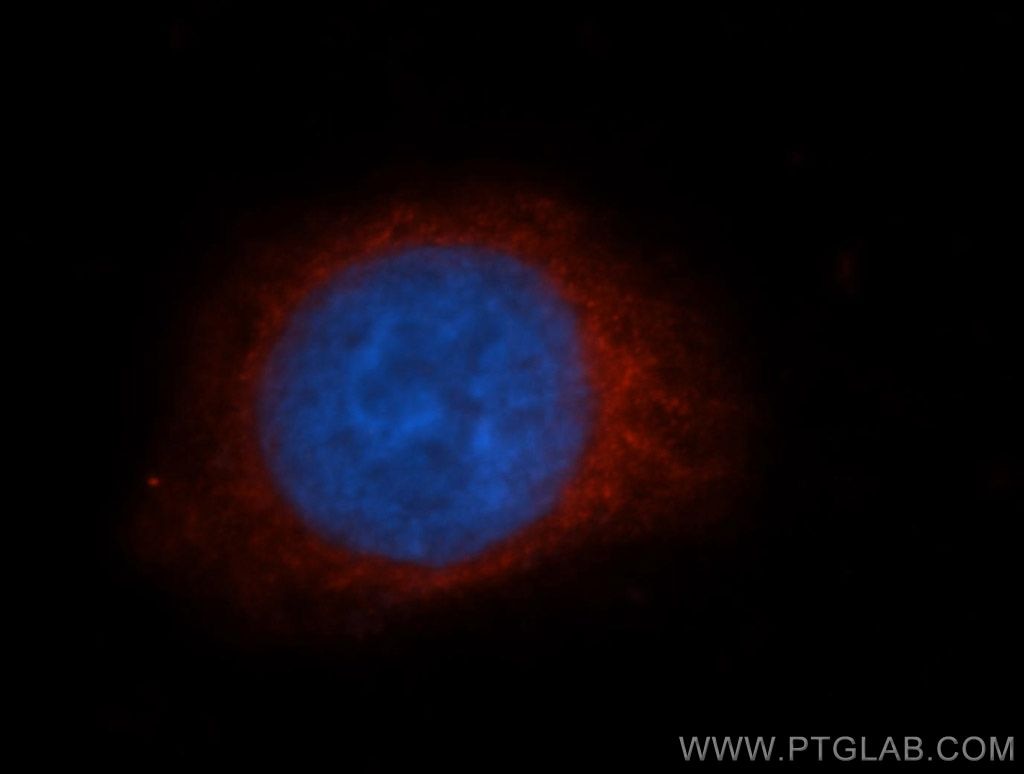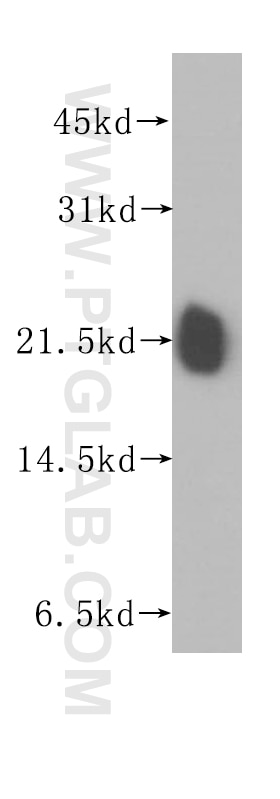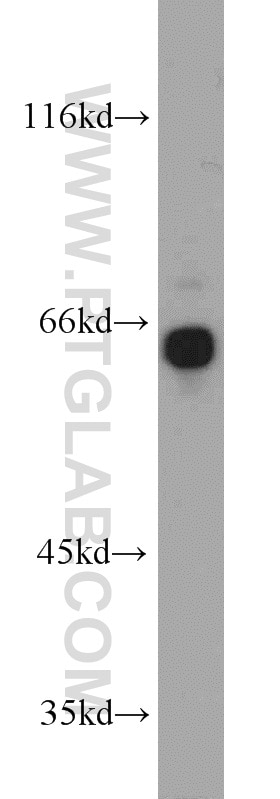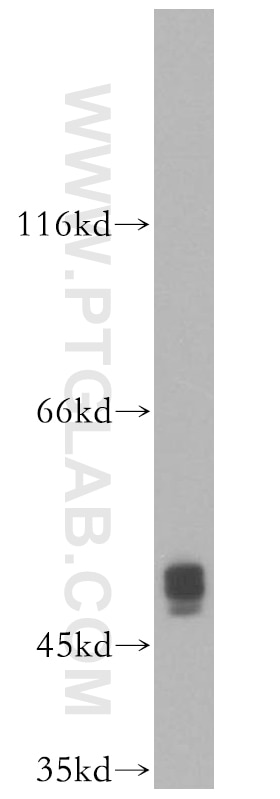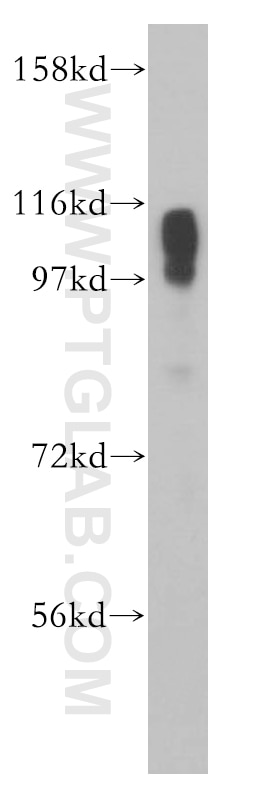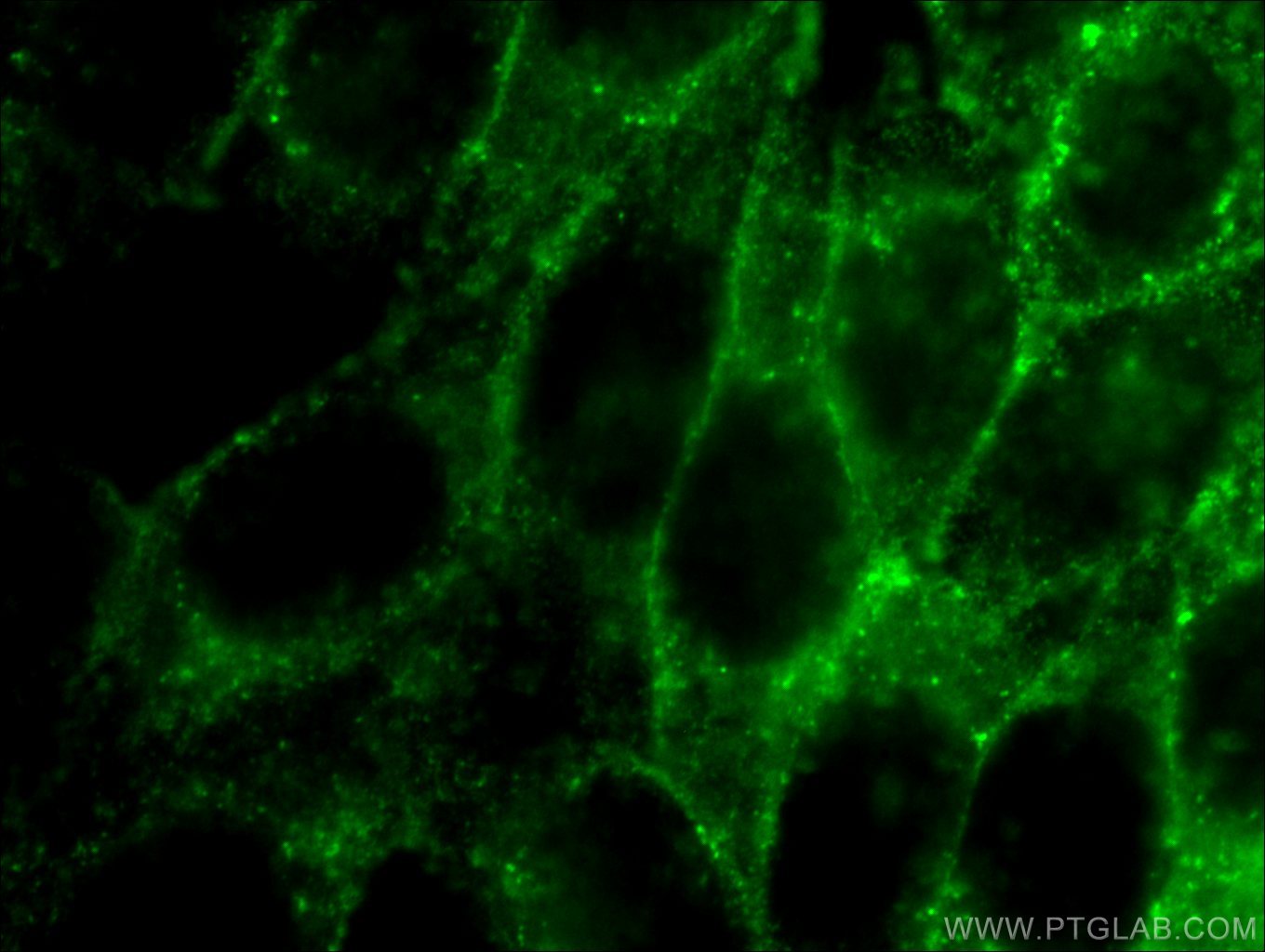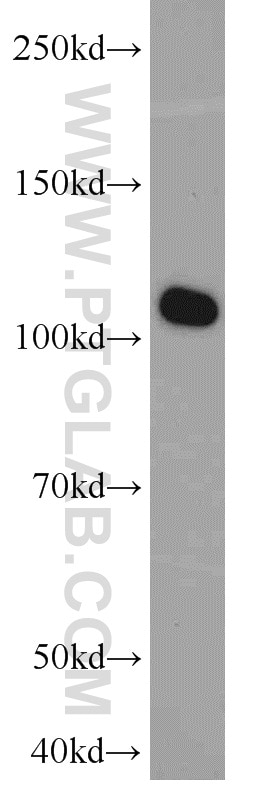- Phare
- Validé par KD/KO
Anticorps Polyclonal de lapin anti-HAX1
HAX1 Polyclonal Antibody for WB, IP, IHC, ELISA
Hôte / Isotype
Lapin / IgG
Réactivité testée
Humain, souris et plus (3)
Applications
WB, IP, IF, RIP, IHC, ELISA
Conjugaison
Non conjugué
N° de cat : 11266-1-AP
Synonymes
Galerie de données de validation
Applications testées
| Résultats positifs en WB | cellules HeLa, cellules HEK-293 |
| Résultats positifs en IP | tissu cérébral de souris |
| Résultats positifs en IHC | tissu de lymphome humain, il est suggéré de démasquer l'antigène avec un tampon de TE buffer pH 9.0; (*) À défaut, 'le démasquage de l'antigène peut être 'effectué avec un tampon citrate pH 6,0. |
Dilution recommandée
| Application | Dilution |
|---|---|
| Western Blot (WB) | WB : 1:500-1:2000 |
| Immunoprécipitation (IP) | IP : 0.5-4.0 ug for 1.0-3.0 mg of total protein lysate |
| Immunohistochimie (IHC) | IHC : 1:50-1:500 |
| It is recommended that this reagent should be titrated in each testing system to obtain optimal results. | |
| Sample-dependent, check data in validation data gallery | |
Applications publiées
| KD/KO | See 7 publications below |
| WB | See 14 publications below |
| IHC | See 3 publications below |
| IF | See 5 publications below |
| IP | See 3 publications below |
| RIP | See 1 publications below |
Informations sur le produit
11266-1-AP cible HAX1 dans les applications de WB, IP, IF, RIP, IHC, ELISA et montre une réactivité avec des échantillons Humain, souris
| Réactivité | Humain, souris |
| Réactivité citée | Humain, porc, singe, souris, Hamster |
| Hôte / Isotype | Lapin / IgG |
| Clonalité | Polyclonal |
| Type | Anticorps |
| Immunogène | HAX1 Protéine recombinante Ag1792 |
| Nom complet | HCLS1 associated protein X-1 |
| Masse moléculaire calculée | 32 kDa |
| Poids moléculaire observé | 32 kDa |
| Numéro d’acquisition GenBank | BC014314 |
| Symbole du gène | HAX1 |
| Identification du gène (NCBI) | 10456 |
| Conjugaison | Non conjugué |
| Forme | Liquide |
| Méthode de purification | Purification par affinité contre l'antigène |
| Tampon de stockage | PBS avec azoture de sodium à 0,02 % et glycérol à 50 % pH 7,3 |
| Conditions de stockage | Stocker à -20°C. Stable pendant un an après l'expédition. L'aliquotage n'est pas nécessaire pour le stockage à -20oC Les 20ul contiennent 0,1% de BSA. |
Informations générales
HAX1, also named as HS1BP1, is a 32 kDa protein that is ubiquitously expressed. Hax1 has been demonstrated to be a negative regulator of apoptosis in many immune cell types. Furthermore, Hax1 has been shown to have additional roles in regulating cell motility and adhesion, and is overexpressed in many types of cancer. Kristina and Cavnar demonstrate in their paper validation of two research antibodies including Proteintech's anti-Hax1 (11266-1-AP). They have evidence that the rabbit anti-Hax1 (11266-1-AP, Proteintech Group Inc.) results in a more robust and consistent detection of Hax1.
Protocole
| Product Specific Protocols | |
|---|---|
| WB protocol for HAX1 antibody 11266-1-AP | Download protocol |
| IHC protocol for HAX1 antibody 11266-1-AP | Download protocol |
| IP protocol for HAX1 antibody 11266-1-AP | Download protocol |
| Standard Protocols | |
|---|---|
| Click here to view our Standard Protocols |
Publications
| Species | Application | Title |
|---|---|---|
Mol Cell The IMiD target CRBN determines HSP90 activity toward transmembrane proteins essential in multiple myeloma. | ||
Nat Commun Cerebellar Kv3.3 potassium channels activate TANK-binding kinase 1 to regulate trafficking of the cell survival protein Hax-1. | ||
FASEB J Suppression of Kv3.3 channels by antisense oligonucleotides reverses biochemical effects and motor impairment in spinocerebellar ataxia type 13 mice. | ||
J Cell Mol Med HAX1 maintains the glioma progression in hypoxia through promoting mitochondrial fission. | ||
Fish Shellfish Immunol Lamprey PHB2 maintains mitochondrial stability by tanslocation to the mitochondria under oxidative stress. |
